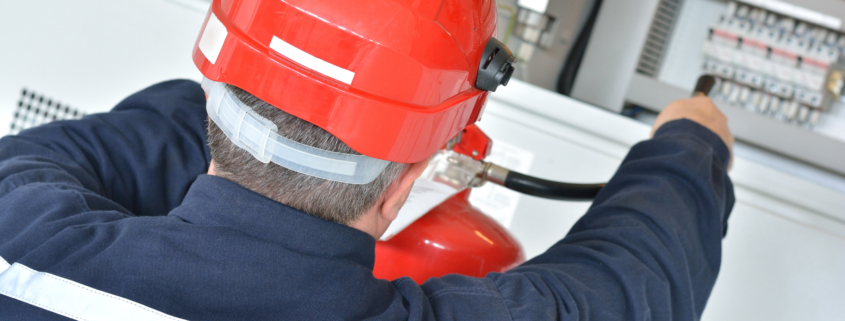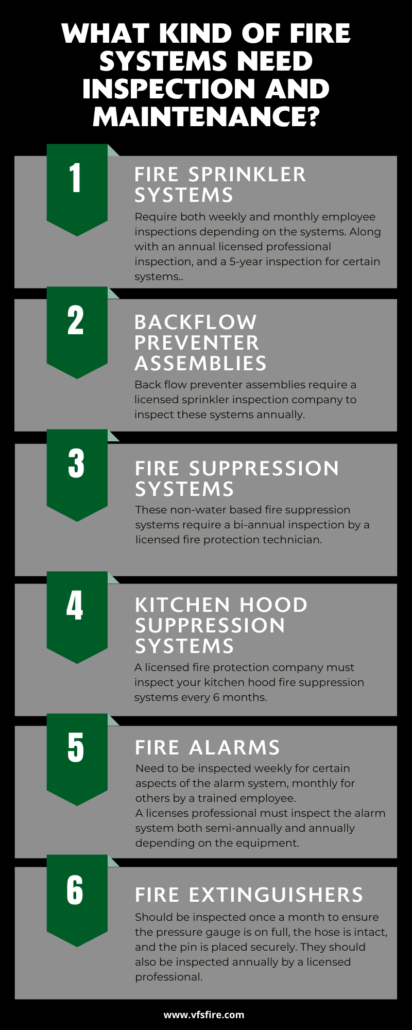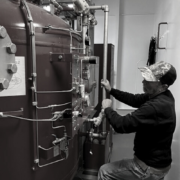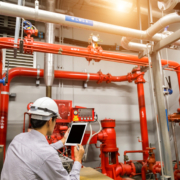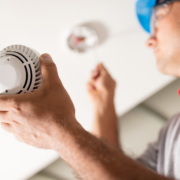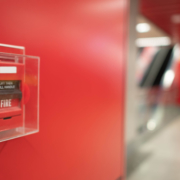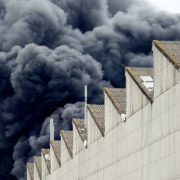WHY DOES YOUR BUILDING NEED PREVENTATIVE MAINTENANCE?
Preventative fire and life safety system maintenance can save your building costly repairs. More importantly, it can keep your people safe from faulty equipment accidents.
Why does your building need preventative maintenance inspections?
Your building occupants’ safety and wellbeing is your top priority as a building owner. Fires and other incidents are unpredictable, but you should prepare for the possibility they do occur. In order to stay properly prepared for emergencies, regular fire system inspections are essential. You need to know when your systems are faulty, in order to fix them before potential emergencies occur.
The National Fire Protection Association, your local authorities who have jurisdiction, and the International Code Council implement fines for not following inspection standards. Fines and penalties, however, are the least of your worries if your alarm, sprinkler, or fire suppression systems don’t work when you need them.
How else can fire system inspection help your business?
With ongoing fire preventative maintenance, you create a safer work environment for your employees. Your employees won’t fear the danger of a fire breaking out in the office, because your systems will be running efficiently and effectively. Because of this, your employees, visitors, and customers will have a greater sense of security.
Your employees will also be able to be more productive. Not to mention, avoiding costly long-term losses and limited operations in a building that has experienced fire.
Fire system inspections can also prevent your business from paying large fees for noncompliance, as stated above. When you perform preventative maintenance on your systems, you mitigate the cost of replacing unmaintained, corroded, or damaged equipment.
What types of fire systems need inspection and maintenance?
Your fire inspection requirements will vary depending on your facility, the state you operate in, and the various fire protection systems within your building. The type of preventative maintenance varies based on the type of fire system. The NFPA and ICC require that these systems receive an inspection regularly as follows:
Fire Sprinkler Systems
These systems require weekly, employee inspections for dry, pre-action, deluge systems gauges, and control valves. Monthly employee inspections for wet pipe system gauges, and alarm valves.
Annual professional inspections are required for specific pieces of equipment. They are required for the building, hanger/seismic bracing, pipes/fittings, and sprinkler heads. Along with information signage, spare sprinkler heads, pre-action/deluge valves, dry pipe valves, and backflow prevention assemblies.
Lastly, they require a 5-year inspection for internal inspection of sprinkler piping, obstructions, and a valve check.
Backflow Preventer Assemblies
Backflow preventer assemblies require a licensed sprinkler inspection company to inspect these systems annually. These inspections ensure your facility’s drinking water is safe and to ensure the sprinkler systems work properly.
Fire Suppression Systems
These non-water based fire suppression systems require a bi-annual inspection by a licensed fire protection technician. These inspections ensure there is the proper amount of clean agent available, the container is pressurized, and there is no damage to the container.
Kitchen Hood Suppression Systems
A licensed fire protection company must inspect your kitchen hood fire suppression systems every 6 months. These inspections are done to ensure your suppression systems will activate in the event of a fire. It ensure they put the fire out and shut off the gas or electricity used to run the equipment.
Fire Alarms
Routine maintenance is required by a trained employee must inspect the fire alarm components, control panels, power supplies, fuses, LEDs, and trouble signals once a week. They must also inspect the batteries for corrosion once a month. A licensed technician must inspect the initiating devices (heat, smoke, dust detectors) semi-annually. They must also inspect all the fire components and equipment once a year.
Fire Extinguishers
Fire extinguishers require monthly inspections to ensure the pressure gauge is on full, the hose is intact, and the pin is secure. A certified professional must inspect the fire extinguishers yearly.
At VFS, we provide inspections, testing, and maintenance of fire sprinklers and fire alarm systems. Our trained personnel conduct all inspections as outlined by the requirements of NFPA. As well as abiding by the local codes that apply to your specific area of operation.
With VFS, your preventative maintenance is top-of-mind. Your inspections will always be up to code and easy to access and schedule with our team!


